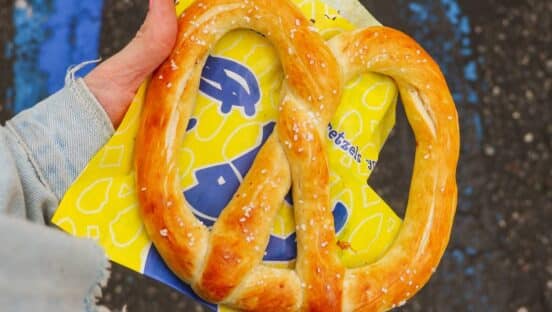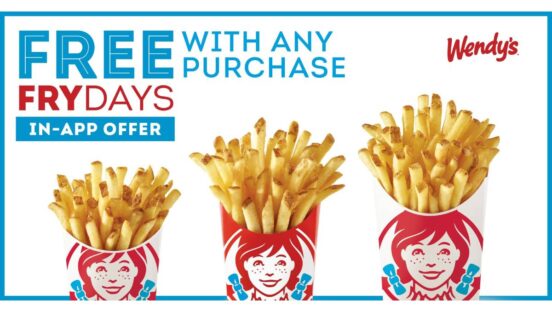In an open letter, Restaurant Brands International CEO José Cil announced Monday that his company will provide financial relief for franchisees amid the COVID-19 pandemic and that it will provide a bonus in April to employees at North American corporate stores.
To help franchisees, RBI is advancing cash payments and rebates to operators, including $70 million worth in North America. The CEO added that RBI is continuing to look for other sources of advanced payment for franchisees.
STAY UP TO DATE WITH OUR CORONAVIRUS LANDING PAGE
At the 3,700 locations where it owns property (Tim Hortons in Canada, Burger King in U.S. and Canada), the company is switching its rent structure from fixed and variable to 100 percent variable. The brand also deferred rent payments for up to 45 days, which it claims will free up tens of millions of dollars in working capital. RBI is contacting its landlords in North America to strike similar financial agreements. Capital expenditures for new restaurants, remodels, and equipment changes have been suspended.
To provide further help, RBI established Restaurant Owner Liquidity Support Teams across each brand to give one-on-one support to restaurant owners and give guidance on adjusting debt service schedules with lenders.
There’s also teams to expedite access to the recently passed $2 trillion economic stimulus package. The CARES Act provides $349 billion in forgivable loans to small businesses. Companies with 500 or fewer employees qualify. Since the provision is based on the amount of employees at one location, not overall, franchisees and corporate stores of major chains are eligible.
RBI finished 2019 with around $1.5 billion in cash. Cil said in the letter that the company completely drew down its $1 billion credit facility and now has $2.5 billion in cash.
Regarding employees, the April bonus includes all company-owned workers at Tim Hortons, Burger King, and Popeyes.
At Tim Hortons in Canada, RBI partnered with operators to create a $40 million (CAD) employee relief fund to pay employees affected by COVID-19 up to 14 days. At Burger King and Popeyes, corporate store employees are eligible for up to 14 days of paid sick leave if they’ve been diagnosed or asked to quarantine.
For consumers, Tim Hortons is introducing enhanced mobile pick-up functionality on its app. Meanwhile, Burger King and Popeyes will soon launch operational procedures for curbside takeout. The feature is mainly for those who can’t access drive thru, like truck drivers, or those arriving on foot. In addition, the availability of home delivery has been expanded across all three brands, including through internal delivery channels on the Burger King and Popeyes apps in the U.S. Soon, RBI will rapidly expand delivery coverage for Tim Hortons in Canada via third-party delivery partners.
Cill added, “our marketing teams have quickly pivoted to redirect our substantial marketing efforts to focus on the importance and safety of our mobile app, delivery and drive-thru channels, in addition to other major health and safety measures like contactless payments.“
To ensure sanitation at restaurants, RBI has made hand sanitizer available to employees and customers and sent 15,000 infrared thermometers to its brands to confirm employees are healthy when they arrive to work.
To assist the community, Burger King has donated more than 500,00 meals to families with children whose schools are closed. In China, the burger brand donated $1 million RMB to the Red Cross to help frontline medical officials. In Italy, the chain donated 8 tons of food to the Red Cross and donated meals to local hospitals. Programs to help health officials have been established in Spain, Germany, the U.K., the United Arab Emirates, Qatar, Lebanon, Turkey, Iran, Poland, the Czech Republic, Australia, and Malaysia.
Customers who order delivery through Popeyes’ app can donate $1 to No Kid Hungry. The company will match donations for a limited time.
Tim Hortons has deployed coffee trucks throughout Canada to provide free coffee and donuts to healthcare workers and first responders. Some franchisees have done the same in their local communities.
Burger King, stateside, continues to offer two free King Jr. kids’ meals with the purchase of any adult meal through its app.
“I am thankful that we are guided by such a thoughtful leadership team and business partners who have proven to be the very best of hard working, good people in all of their advice and decision-making,” Cil said in the letter. “There is undoubtedly more uncertainty and tough decisions ahead of us. And we will tackle them as a team, with a wider range of voices and perspectives that will make us stronger.”










